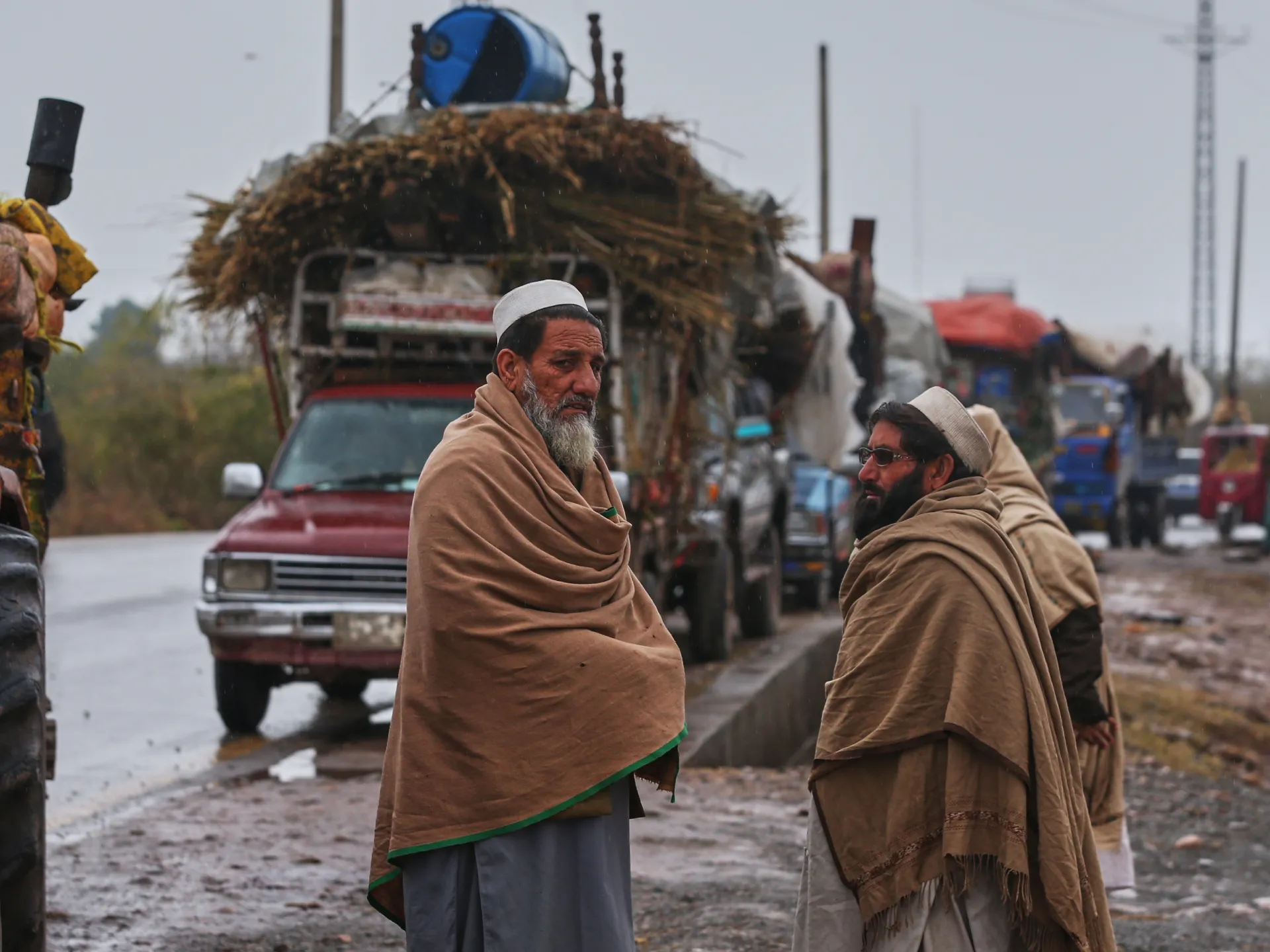Tens of thousands flee northwest Pakistan’s Tirah over fears | Gallery News
Published On 28 Jan 2026
More than 70,000 people, mostly women and children, have fled from Tirah, a remote region in northwestern Pakistan bordering Afghanistan, as fears grow of an imminent military offensive against the Pakistan Taliban, according to local residents and officials.
Pakistan’s Defence Minister Khawaja Muhammad Asif has contradicted claims made by locals and provincial authorities, insisting no military operation is occurring or planned in the Khyber Pakhtunkhwa province town.
During an Islamabad news conference, he attributed the mass migration to harsh weather conditions rather than military actions, despite residents fleeing for weeks over fears of an impending army operation.
The exodus began after mosque announcements in December last year urged residents to vacate Tirah by January 23 to avoid possible conflict. This follows Pakistan’s August military campaign against Taliban forces in the northwestern Bajaur district, which displaced hundreds of thousands.
Shafi Jan, a provincial government spokesman, blamed federal authorities via social media for the displaced people’s hardships, accusing the Islamabad government of changing its position regarding military operations.
Meanwhile, Khyber Pakhtunkhwa Chief Minister Sohail Afridi, from imprisoned former Prime Minister Imran Khan’s party, has opposed military intervention and pledged to prevent a full-scale operation in Tirah.
Military officials maintain they will continue targeted intelligence operations against Tehrik-e-Taliban Pakistan (TTP). They claim many TTP fighters have found refuge in Afghanistan since the Afghan Taliban’s 2021 return to power, with hundreds crossing into Tirah and using residents as human shields during raids.
Nearly half of population
Local government administrator Talha Rafiq Alam reported that approximately 10,000 families – about 70,000 people – from Tirah’s 150,000 population have registered as displaced. The registration deadline has been extended from January 23 to February 5, with assurances that residents can return once security improves.
Zar Badshah, 35, who fled with his family, said mortar explosions in villages recently killed one woman and injured four children in his community. “Community elders told us to leave. They instructed us to evacuate to safer places,” he said.
At a Bara government school, hundreds waited in registration lines for government assistance, many complaining about slow processing. Narendra Singh, 27, explained that members of the Sikh minority also fled Tirah due to food shortages worsened by heavy snowfall and security concerns.
Tirah gained national attention last September after an explosion at an alleged bomb-making facility killed at least 24 people. While authorities claimed most casualties were TTP-linked fighters, local leaders contested this account, stating civilians, including women and children, were among the dead.
